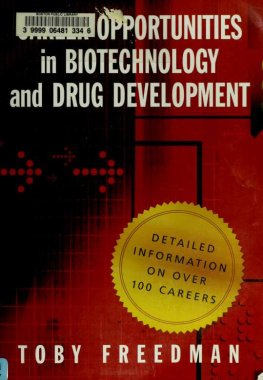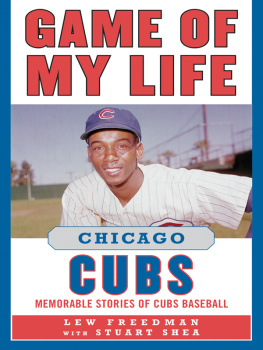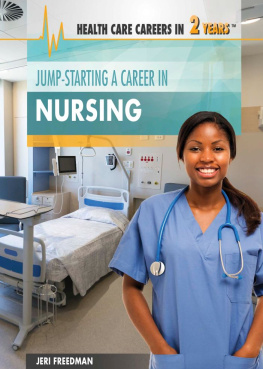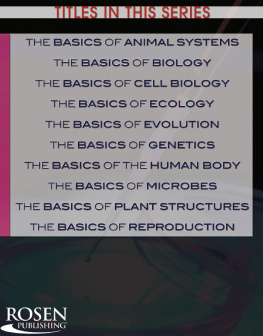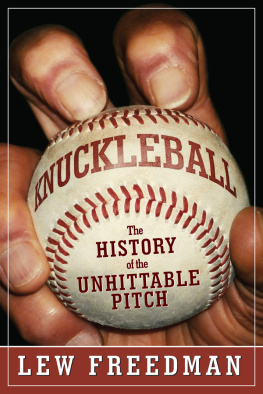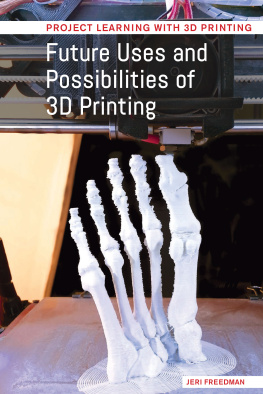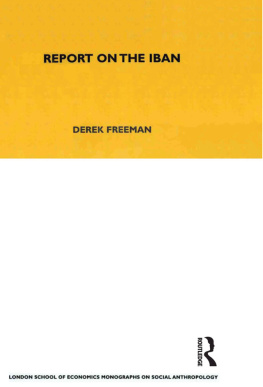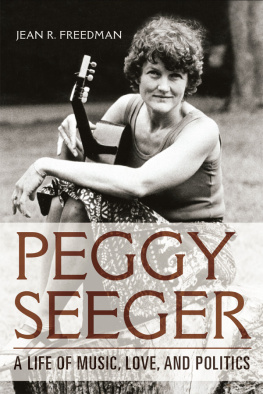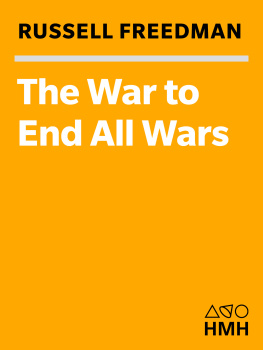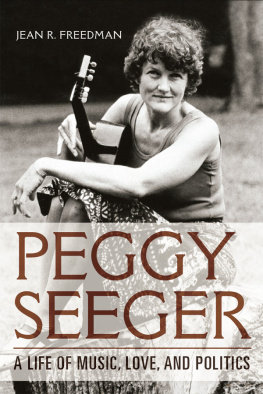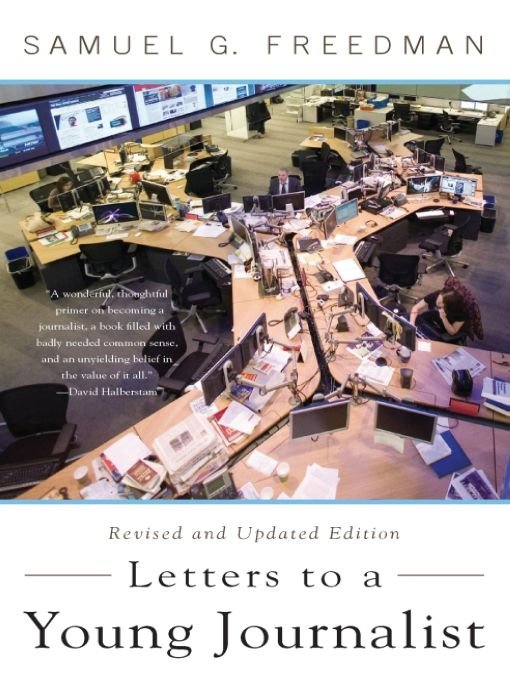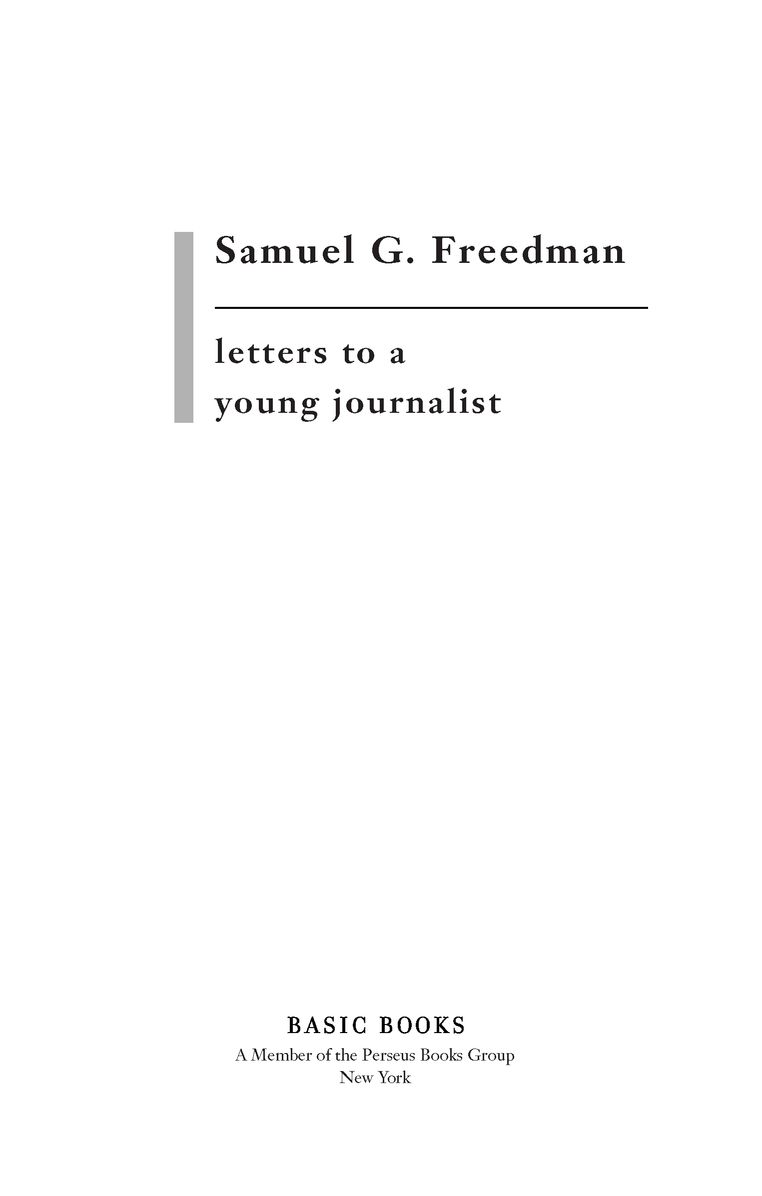Table of Contents
Praise for Samuel J. Freedmans
Letters to a Young Journalist:
Maybe you think, because of the title, that Letters to a Young Journalist isnt for you. Youre not a journalist. Maybe youre not even young. No matter.... You should read this book. You should especially read it if youre one of those people who polls tell us are skeptical of the news medias ability to get the facts straight and present them in a politically unbiased manner. At best, Letters to a Young Journalist may convince you that the media are doing a better job than youve thought they are.
Chicago Sun-Times
At once idealistic and practical, sobering and inspirational, Letters to a Young Journalist blends Freedmans personal war stories with newspaper wisdom of the ages.... The book is written for the jaded professional and the aspiring writer at a high school or college paper whos thinking of a career as a reporter. As a doer and a teacher, Freedman is a superb, though stern, mentor.... With the field spinning through a bad news cycle, and the future so uncertain, Freedmans commitment to principled reporting is more vital than ever.
The Times Union (Albany, NY)
[An] important book.... [Freedman] has the courage to say things most of us in the newsroom know but rarely admit.... Freedmans courage to speak about journalism in his unflinching moral tone gives this book its power. Its a tonic for a business thats turning news into a commodity and exalts blogging and other first-person prattling as a solution to what ails journalism.
Nieman Reports
Reading Freedmans book helped restore my faith in my chosen profession. At our best, journalists help people make sense of the world.... What we need are more people who think like journalists. We need more people who ask the extra question, people who reject easy answers, people who care about their neighbors and their communities. That doesnt fit characters like Molly Ivins and Ann Coulter and their ilk. Theyre big-name pundits who are great at thinking up witty one-liners and attacking the other side.... I wish theyd read Freedmans book.... I felt refreshed by Freedmans words.
Springfield News-Leader (Missouri)
Freedmans fine new book, Letters to a Young Journalist, is a useful antidote to the corrosive expectations of fame and fortune that have come to afflict the Fourth Estate. If enough aspiring reporters read it, and take it to heart, it may begin to improve public attitudes about journalism as well.... His description of the journalists writing processconceptualization, reporting, outlining, re-reporting, drafting, and revisionis so sensible and succinct that Im going to stick it on my wall for my next writing project.... You must shape reality without misshaping it, Freedman writes. Thats as good a description of journalism as I have seen.
Columbia Magazine
A frank, heartfelt look at the practice of American journalism... Drawing on conversations with students, other reporters, and editors, Freedman speaks very directly and personally, offering encouragement with equal portions of reality about the state of modern journalism from corporate influences to the blurring of lines between truth and propaganda. Noting that the current lack of popularity of journalism will drive out the uncommitted, Freedman devotes his message to those who continue to believe in the value and necessity of a free press.
Booklist
Young or old, reporters, editorsindeed anyone who practices journalism or consumes it, can profit from the lessons, wisdom, war stories, battle plans, celebrations of best practices and the stinging lessons of failure contained in... Letters to a Young Journalist.... Freedmanss focus is razor-sharp.... Letters to a Young Journalist doesnt shy away from the hard truths of the newsroom... But those painful realities are tempered by the often joyous struggles of the profession: dogged reporting, graceful writing, all within a moral framework of a profession that continues to draw our best and brightest... who are determined to beat journalisms reaper as well as deadlines ticking clock.
PoynterOnline
Letters is not simply [Freedmans] reminiscences, nor is it a screed about the decline of journalism.... The book is fundamentally a manual that addresses how to be a journalist and how to succeed in the business.... [Freedman] offers valuable advice based on his experiences and the collective wisdom of his colleagues, including the need to adhere to such standards as trust, accuracy, and relevancy. Aspiring journalists can profit from this concise and purposeful guide.
School Library Journal
Journalism is a calling, and Sam Freedmanthrough his experience and his exampleis a testament to this. Letters to a Young Journalist is moving and edifying and packed with keen, generous informationweve needed this book for years.
Adrian Nicole LeBlanc, author of Random Family
Samuel Freedmans Letters to a Young Journalist is so wise and honest in its clear-eyed description of the good, the bad, and ugly of modern journalism that it will scare away the faint of heart and inspire those who are born to understand the place and purpose and nobility of fine journalism in American society.
Walt Harrington, author of Intimate Journalism and Head, Department of Journalism, University of Illinois
Also by Samuel G. Freedman
Small Victories: The Real World of a Teacher,
Her Students, and Their High School
Upon This Rock: The Miracles of a Black Church
The Inheritance: How Three Families and America
Moved from Roosevelt to Reagan and Beyond
Jew Versus Jew: The Struggle for the Soul of American Jewry
Who She Was: My Search for My Mothers Life
www.samuelfreedman.com
To my mentors,
Robert W. Stevens, Jim Podgers, Cissi Falligant,
Jeff Schmalz, Arthur Gelb, Abe Rosenthal, Alice Mayhew
Foreword
The summer after I graduated college, I got an internship on the Minneapolis Star. I was the newest of newcomers, so new that my car was towed from the employee parking lot on my first day. I was too ashamed to complain, so I walked something like four miles to the impoundment lot, soaking through my one good suit.
Forgive the digression, because thats not even the main point I want to share with you now. As I was saying before interrupting myself, as an intern I was at the bottom of the seniority ladder, and I received the schedule and assignments to match. I had to work on Saturday mornings starting at seven, which definitely put a crimp in Friday nights. My first duty on those morning shifts was to call every outpost of the state police throughout Minnesota and ask for accident reports. Even when I was already holding a wire service bulletin about some fatal crash, the troopers would laconically say, Nothing here. I swear, those guys wouldnt have admitted to a nuclear strike.
On my weekdays in the office, I did a rotation on what was known as lobby duty. In those days, any ix passerby could just stroll into the reception area of the Stars newsroom and ask to speak to a reporter or editor. Even more amazingly, someone like me was then dispatched to hear them out. A few folks showed up reeking of malt liquor and smoke, and some claimed the CIA was communicating with them through their tooth fillings. But for the most part, they were regular people who felt so connected to the daily newspaper that they considered it approachable, ready to hear what they had to say.


